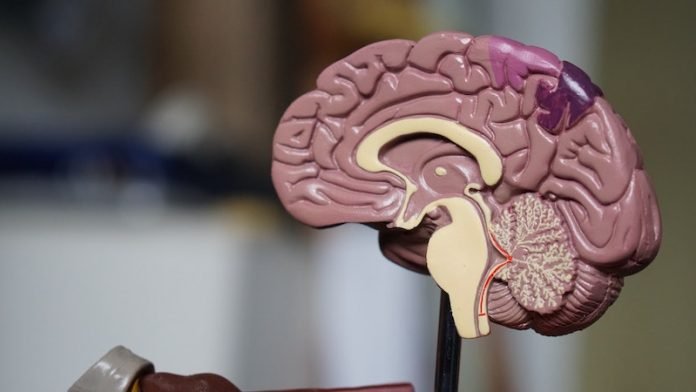
A new study from Western University found how specific lesions in the brain could be used as early predictors of cognitive decline and identify those who are at high risk of developing dementia.
They found the importance of brain lesions known as white matter hyperintensities as early predictors of cognitive decline—which could lead to earlier interventions and improvements.
The study is published in Alzheimer’s & Dementia and was conducted by Austyn Roseborough et al.
White matter hyperintensities—which have been studied since the 1980s—are linked to leakage of blood proteins into the white matter structure of the brain, which increases inflammatory processes and causes loss of tissue integrity in the lesions.
Up to 60 percent of people have some white matter hyperintensities by the time they are 50—some in small amounts and some in higher volumes. The higher the volume, the higher the risk of severe outcomes.
In the review study, the team examined the long-term impacts of white matter hyperintensities on various patient groups, including those with mild cognitive impairment, Alzheimer’s disease, or those who have suffered a stroke.
Past research on the brain lesions grouped those patients together, but by studying them separately, the team was able to assess the unique contributions of white matter hyperintensities to cognitive decline in each group.
Among all the groups, evidence of the lesions predicted worse cognitive outcomes and faster rates of cognitive decline. The lesions can be detected on an MRI.
The researchers also found the association between future cognitive decline and white matter hyperintensities is strongest in individuals with mild cognitive impairment and/or stroke.
The team found people who had a stroke and had severe white matter hyperintensities appear on an MRI scan were very likely to have worse cognitive outcomes anywhere from six months to five years post-stroke.
Those individuals also had an increased risk of conversion to dementia.
Researchers said if patients could access an MRI at the time of their stroke, identifying the severity of white matter hyperintensities, it could help determine which patients are at highest risk for severe outcomes.
This would allow clinicians to better determine therapeutic interventions and early treatment protocols.
Recent studies have found this common food could increase your dementia risk, and how to use a healthy lifestyle to prevent dementia, which is highly relevant to the current study.
Sign up for our newsletter for more information about this topic.
Several research studies have found new ways to predict dementia risk.
In a recent study from the Florida State University, researchers found that changes in the brain linked to Alzheimer’s disease are often visible early on in individuals with personality traits associated with the condition.
They confirmed that neuroticism is linked to higher dementia risk. It measures a predisposition for negative emotions.
In the study, the team focused on two traits previously linked to the risk of dementia: Neuroticism and conscientiousness, which measures the tendency to be careful, organized, goal-directed, and responsible.
The team combined data from the Baltimore Longitudinal Study of Aging (BLSA) and previously published work in a meta-analysis that summarized 12 studies on personality and Alzheimer’s neuropathology.
The studies combined included more than 3,000 participants.
In both the BLSA and meta-analysis, the researchers found more amyloid and tau deposits (the proteins responsible for the plaques and tangles that characterize Alzheimer’s disease) in participants who scored higher in neuroticism and lower in conscientiousness.
The team also found associations to be stronger in studies of cognitively normal people compared to studies that included people with cognitive problems.
The findings suggest that personality can help protect against Alzheimer’s and other neurological diseases by delaying or preventing the emergence of neuropathology for those strong in conscientiousness and low in neuroticism.
Such protection against neuropathology may derive from a lifetime difference in people’s emotions and behaviors.
Low neuroticism helps with managing stress and reduces the risk of common mental health disorders. Similarly, high conscientiousness is consistently related to healthy lifestyles, like physical activity.
Over time, more adaptive personality traits can better support metabolic and immunological functions and ultimately prevent or delay the neurodegeneration process.
If you care about dementia, please read studies about health issues that could double your dementia risk, and these 12 things can prevent dementia effectively.
For more information about dementia, please see recent studies that the Mediterranean diet may strongly prevent dementia, memory loss, and results showing that lack of sleep in middle age may increase dementia risk.
Copyright © 2022 Knowridge Science Report. All rights reserved.



